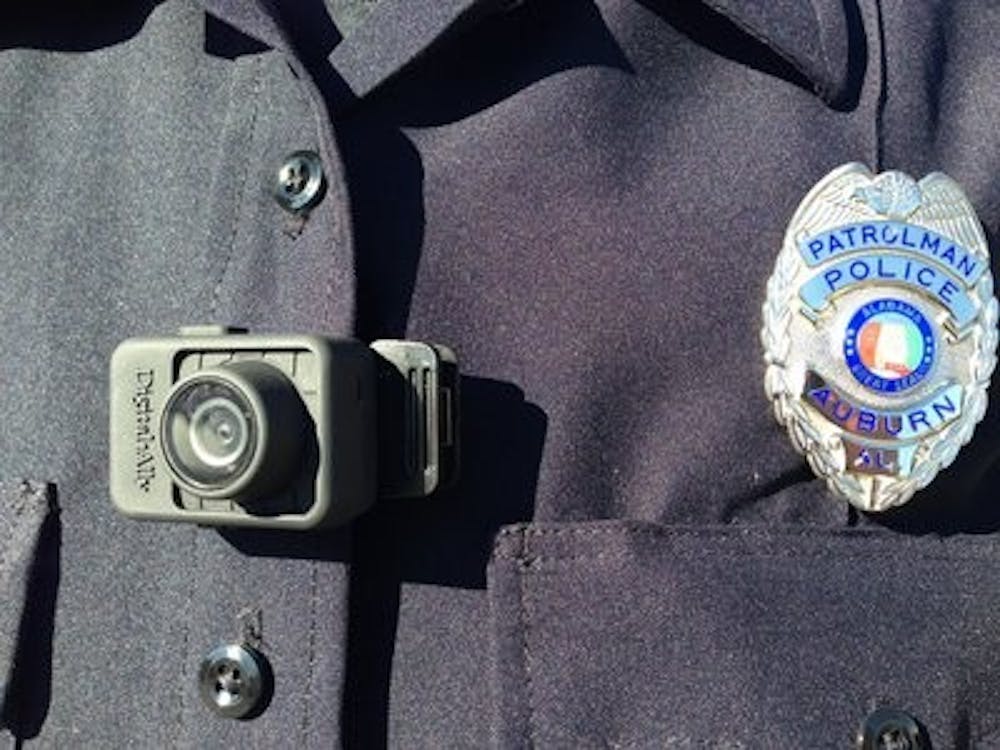Body-worn cameras may become a common sight on the uniforms of Auburn police officers.
As protest against the deaths of Michael Brown in Ferguson, Missouri, and Eric Garner in New York City continue across the country, many protesters have called for police to be required to wear body cameras.
President Barack Obama announced in December the government would spend $75 million to help local police department purchases the cameras.
According to Capt. Will Mathews, the Auburn Police Division has been using body-worn cameras for its bike patrol for at least the past six years.
The APD began purchasing body-worn cameras that came bundled with in-car cameras last October for its patrol officers.
Bill James, director of Public Safety for Auburn, said his office was looking into the requirements of the federal program.
"We are going to look at it to see if we qualify," James said. "It's something we'd be interested in pursuing."
Mathews said patrol officers are not required to wear the cameras.
"It's more of just teaching the officer that the camera works in his benefit most of the time," Mathews said, "so it's beneficial to use it as much as you can."
Mathews said officers wearing the camera are not required to record every interaction with the public.
"We do give them some guidelines of what you should and shouldn't try to capture," Mathews said. "I would never want to go into an interview of a sexual assault victim or something like that and have someone expect me to have a video camera running."
Auburn Police Chief Paul Register told The Plainsman in September APD would be increasing the number of body-worn cameras.
"They do a very good job in diffusing complaints and makes the officers feel good," Register said. "They like having the cameras because it gives us the ability to review the complaints. More than anything, it's been a help to justify what the officers have done."
The cameras, which are purchased from a company called Digital Ally, use the same video management software as the in-car cameras.
James Buston, assistant city manager and chief information officer for Auburn, said the software compatibility of the two systems has made it easy to integrate it into the current system.
"There are always challenges with any technology," Buston said.
Buston said the biggest problem was storage capacity.
"It's fortunate that space is cheap these days," Buston said. "As we need capacity, we can add space."
Mathews said most of the officers love having the cameras.
"It's just another tool on our tool belt," Mathews said. "It's not the perfect answer to every problem."
Mathews said a video recording is just one perspective.
"The thing people have to remember is that a lot of stuff happens off frame," Mathews said.
Do you like this story? The Plainsman doesn't accept money from tuition or student fees, and we don't charge a subscription fee. But you can donate to support The Plainsman.





